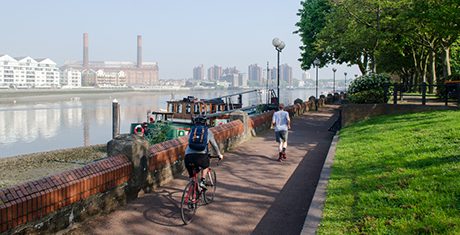
The High Court has ruled that the UK Government is not doing enough to tackle air pollution, the second ruling to that effect made in the last 18 months.
Mr Justice Garnham ruled that the Environment Secretary had failed to take steps to bring the UK into compliance with the law “as soon as possible”.
The case against the Government was brought by legal NGO ClientEarth, which described the decision as a “damning indictment of ministers’ inaction on killer air pollution”, as reported by The Guardian.
Last year ClientEarth won a case against the Government in the Supreme Court over air pollution levels in the UK, obliging ministers to come up with a fresh plan to tackle the problem. The inadequacy of the new plan prompted ClientEarth to bring a new action against the Government.
Facts that came to light during the case included George Osborne’s move to block plans that would bring air pollution within legal limits in the UK because they were above the absolute minimum the government decided it could get away with.
It now appears that Defra drafted a more ambitious set of plans but these were slapped down by the Treasury, which said they were of “high cost to HMG at a time of significant affordability constraints” and above what the Government considered the minimum it could get away with.
These more ambitious plans included measures to charge diesel cars for entry to towns and cities badly affected by air pollution.
During this latest action, there were parallels with the emissions scandal surrounding Volkswagen cars, in that the judge fingered ministers’ reliance on an overly optimistic model of air pollution, according to ClientEarth.
Commenting on the case, Greenpeace air pollution campaigner Barbara Stoll, said:
“This judgement matters to every person breathing in the UK but it can only be called a victory when the levels of toxic air actually start to go down. Which means the government needs to properly police the car industry who are still permitted to produce cars that emit up to 14 times over the legal limit. Getting to grips with this scourge means action locally as well as nationally, and the government needs to provide adequate resource to enable cities to phase out diesel vehicles from our roads, and help people make the switch to cleaner alternatives”.
The decision comes on the same day Greenpeace launched a radical plan to bring emissions down to legal levels in London and calls for cross-party support to solve the health crisis caused by air pollution in the UK.
A new IPPR report supported by Greenpeace shows that diesel vehicles are responsible for nearly 40% of all NO2 emissions in London and need to be comprehensively tackled with a view to phasing them out, in order to ensure air pollution is brought to safe levels. Bad quality air is the second most important factor impacting on public health in the capital after smoking.
The paper will be released today, together with an online film that shows a little boy’s struggle with asthma in the capital.
London is currently breaking WHO limits for NO2 and particulate matter, which means 10,000 lives prematurely lost every year and an annual cost of £3.7 billion.







